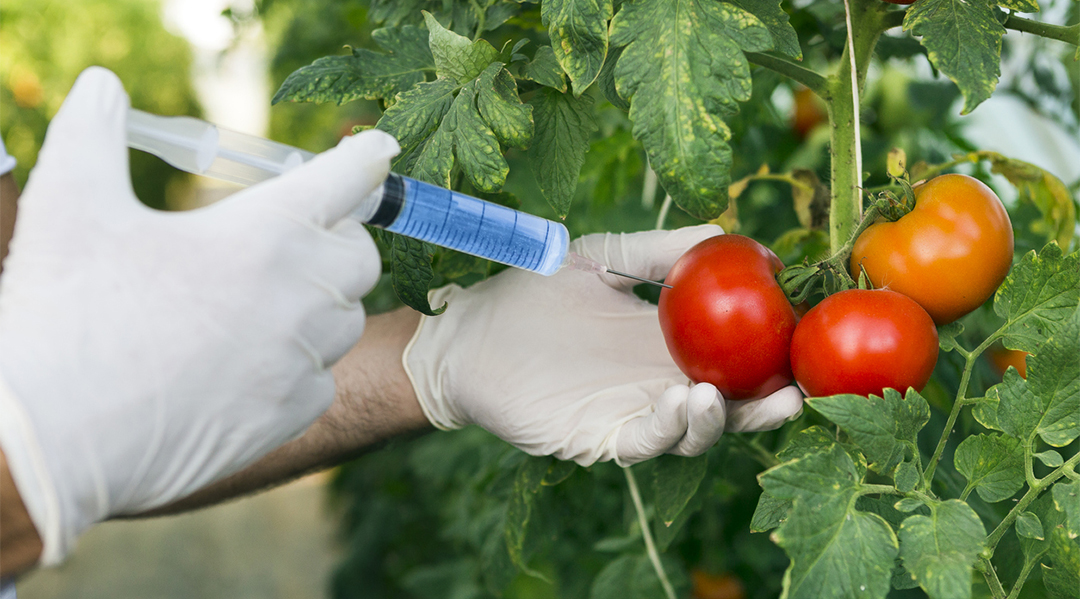NK603 Corn Event Detection Testing
The NK603 corn event is a genetically modified organism (GMO) that has been engineered to express the Cry1Ab and Cry1Ac insecticidal proteins derived from the bacterium Bacillus thuringiensis. This modification allows the plant to resist certain pests, specifically European corn borer and other lepidopteran insects. The testing for this specific event is crucial for ensuring compliance with regulatory requirements and maintaining the integrity of agricultural supply chains.
The demand for NK603 corn detection has grown significantly in recent years due to its widespread cultivation across various regions such as North America, South America, and parts of Asia. Regulatory bodies like the USDA (United States Department of Agriculture) and ECOSAN (European Community Standards Agency) require strict monitoring and testing to ensure that only authorized GMO events are released into the market.
The process involves sample preparation, which typically includes grinding or milling the corn kernels into a fine powder. This step is crucial as it ensures even distribution of DNA fragments for accurate analysis. Following sample preparation, molecular techniques such as Polymerase Chain Reaction (PCR) are employed to amplify specific segments of the target GMO event's genetic material.
The PCR products are then analyzed using various methods including agarose gel electrophoresis or qPCR (quantitative real-time polymerase chain reaction). These analyses help in identifying the presence or absence of the desired genetic marker associated with the NK603 corn event. The results obtained from these tests provide a clear indication whether the sample under examination contains the specific GMO event.
For accurate and reliable testing, it is important to follow standardized protocols as prescribed by international standards such as ISO 15195:2003 for PCR-based methods. These guidelines ensure that all laboratories performing this test adhere to consistent practices, thereby enhancing the credibility of results across different geographical locations.
Quality managers and compliance officers rely heavily on robust testing procedures like NK603 corn event detection to maintain product integrity and meet regulatory standards. This service also plays a pivotal role in research and development activities aimed at improving pest resistance mechanisms without compromising crop quality or yield.
- Accurate Identification: Utilizing advanced PCR technology ensures precise identification of the NK603 corn event, making it easier to differentiate between non-GMO and GMO samples.
- Compliance Assurance: By adhering strictly to internationally recognized standards, this service helps ensure compliance with local and international regulations governing GMO labeling and traceability.
- Data Integrity: Standardized protocols minimize errors and discrepancies in data collection, ensuring reliable and reproducible results.
In summary, NK603 corn event detection testing is essential for maintaining the integrity of agricultural products while complying with stringent regulatory requirements. It supports both commercial operations and scientific research by providing accurate and consistent assessments of GMO presence.
Why Choose This Test?
- Regulatory Compliance: Ensures adherence to international standards such as ISO 15195:2003 and national regulations regarding GMO labeling.
- Precision: Advanced PCR techniques provide highly accurate results, minimizing false positives or negatives.
- Trusted Results: Our laboratory adheres strictly to best practices ensuring consistent and reliable outcomes.
- Efficiency: Streamlines the process of detecting specific GMO events like NK603 corn, saving time and resources for your organization.
The reliability and precision offered by our NK603 corn event detection testing make it an indispensable tool for quality managers, compliance officers, R&D engineers, and procurement professionals. By choosing this test, you can ensure that your products meet the highest standards of integrity and regulatory compliance.
International Acceptance and Recognition
The NK603 corn event has gained widespread acceptance in numerous countries around the world due to its effectiveness against pests without significantly affecting crop productivity. Regulatory bodies such as the USDA, ECOSAN, and others have recognized this GMO event through various approvals and certifications.
For instance, the USDA provides guidelines for labeling products containing NK603 corn, ensuring transparency in the supply chain. Similarly, ECOSAN has established criteria for importing and selling crops modified with this specific genetic modification, promoting fair trade practices.
The International Organization for Standardization (ISO) also plays a critical role in standardizing testing methodologies, including those used for detecting NK603 corn events. These standards ensure consistency and accuracy across different laboratories worldwide, fostering trust among stakeholders involved in agricultural production.
By aligning with these recognized standards, our laboratory contributes to the global effort towards responsible use of biotechnology in agriculture. Our commitment to quality and precision reflects our dedication to supporting industries that value sustainability and innovation.
Environmental and Sustainability Contributions
The development of NK603 corn represents a significant advancement in agricultural biotechnology aimed at improving crop yields while reducing environmental impact. This GMO event has demonstrated substantial benefits for both farmers and the environment.
- Pest Resistance: The Cry1Ab and Cry1Ac proteins expressed by NK603 corn effectively target pests, leading to reduced pesticide use and decreased chemical runoff into water bodies.
- Resource Efficiency: By increasing resistance against certain insects, this event helps minimize crop losses due to pest infestations, optimizing resource utilization.
- Biodiversity Preservation: Reduced reliance on broad-spectrum pesticides contributes to preserving local biodiversity by limiting non-target species exposure.
Our laboratory’s involvement in detecting the presence of NK603 corn events underscores our commitment to supporting sustainable agricultural practices. Through rigorous testing, we contribute towards maintaining environmental health and promoting responsible use of biotechnology in agriculture.





